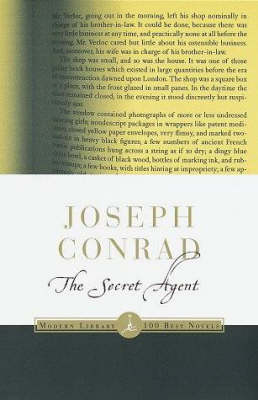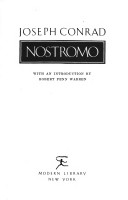Penguin audiobooks
3 total works
In Victory (1915) Conrad returns to the Malay Archipelago, to the setting of his first mature novel, Lord Jim, and in Axel Heyst he creates a hero who is in many ways similar to Jim, a noble altruist destroyed by his ideals. Heyst is emotionally crippled by the influence of his dead father, a sceptical philosopher who has bequeathed to Heyst an attitude to life summed up in the father's dying words: 'Look on - make no sound.' Despite this injunction Heyst allows himself to become inextricably involved with an English Cockney girl whom he rescues from Giancomo's Travelling Ladies' Orchestra and carries off to his isolated retreat on the island of Samburan. His action incurs the fatal wrath of Schomberg, the island's innkeeper, who sends in pursuit of Heyst three demonic strangers whose invasion of his island paradise leads rapidly to the novel's violent and tragic close. Victory was the first of Conrad's novels to be completed after the commercial success of Chance (1914) had transformed Conrad's fortunes and made him internationally famous. It is a more complex example of the literary form which Conrad evolved for Lord Jim: a story of action and high adventure coexisting with an exhaustive study of the psychology of the central character.
This is the only novel that Conrad set in London, and it communicates a profoundly ironic view of human affairs. The story is woven around an attack on the Greenwich Observatory in 1894. Verlac, (a Russian spy who is also working for the police) is ostensibly a member of an anarchist group in Soho. His masters instruct him to discredit the anarchists in some spectacular way. The upshot of the affair is that his evil plan goes horribly wrong and the repercussions are dramatically different from those that Verloc intended.
Nostromo is one of the great novels in world literature. It imaginatively recreates the political, economic, and military history of a Latin American country through a remarkable complex of personal stories. Conrad's dazzling switches of viewpoint and chronology ensure that the reader is embroioled in the stress and passion at the core of each moment of his characters' lives.


